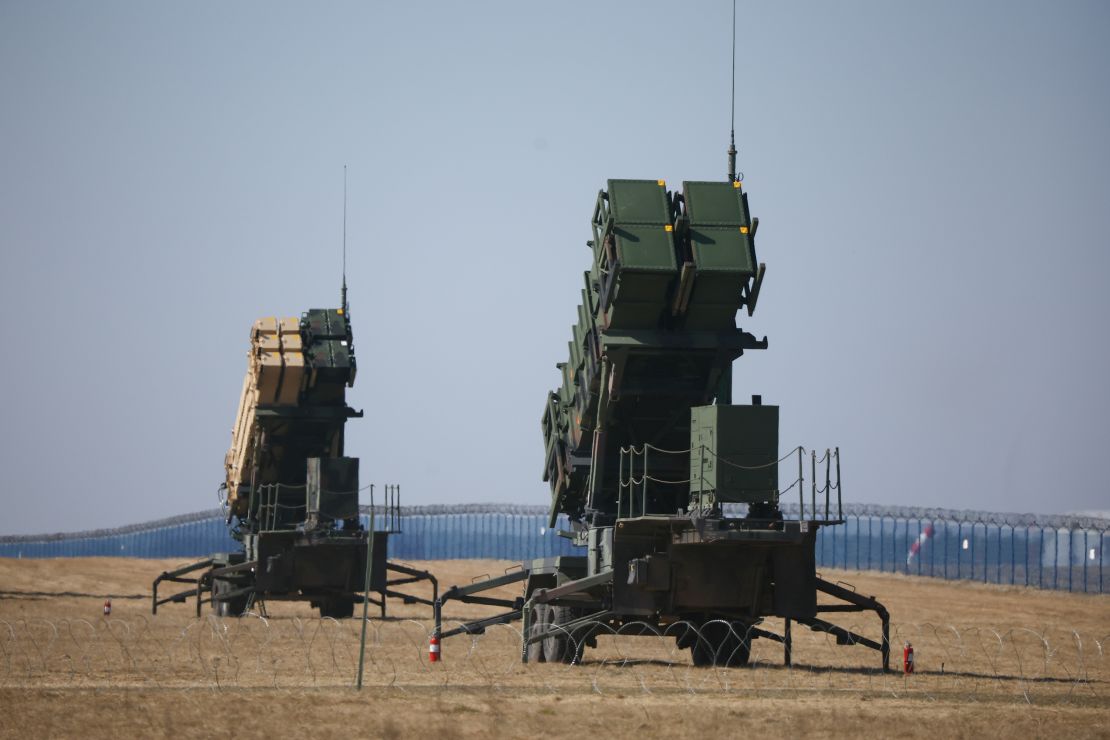London
CNN
—
Donald Trump’s remarks on Ukraine on Monday were far from the biggest announcement the US president could have made.
The good news for Kyiv is familiar. Trump has permitted NATO’s other members to buy American arms – a wide range of them, it seems. Included are the urgently needed Patriot interceptor missiles, and the batteries that fire them. Trump even suggested there were 17 hanging around to “spare” in one NATO nation.
Whatever the precise reality of the arms package NATO eventually affords, it is exactly what Trump suggested at the weekend and exactly what Ukraine needs. The nightly barrage of Russian ballistic missiles can only be stopped by US Patriot missiles, and only the White House can authorize their supply. Ukraine was short of these, and other sophisticated American weapons that may not have been referenced by name and may be included in the deal. This is short-term, vital relief.
But the sting for Ukraine comes in what was not announced: Immediate secondary sanctions against customers of Russian energy, which could significantly empty Moscow’s coffers. The scope of sanctions proposed by a bill in the US Senate – potentially 500% on all trade with those who buy Russian hydrocarbons – would have been devastating.

And those sanctions would hit China and India – the US’s main rival and key ally respectively – at a time when oil prices are low, but trade turmoil is high. The damage to energy markets would have been palpable, and the US would also have been impacted by likely higher oil prices. But this comes with a significant delay, together with the somewhat toothless threat of sanctions against Russia itself (there is almost no trade to penalize).
Fifty days gives Vladimir Putin until September for Trump to change his mind, or for the Russian president’s rumored summer offensive to alter the battlefield reality to the point where Putin is happy to seek a freeze in the conflict. It does create a window in which New Delhi and Beijing may seek to decouple from Russian energy – unlikely given their dependency and how complex that would be – or perhaps apply pressure on Moscow to end the war. That too is a tough ask for Beijing, whose officials have recently indicated they cannot see Moscow lose the conflict without risking the United States turning its full attention to its rivalry with China.
The deadline also shows Trump has yet to give up on the most elusive figment of his Ukraine policy: that the Kremlin actually wants peace, and has yet to be persuaded adequately into it. Trump again held out a deadline to push Russia into a deal. We have been here before, and Putin has let the ticking clock whizz past his ear.
Yet it is important to seize upon Trump’s change in tone – mood music being perhaps the more enduring indication of White House policy than the specifics provided. There was a telling moment in which Trump stopped short of calling Putin an assassin, and painted an image of a White House where the first lady often reminds him of how violently Kyiv is hit by Russians drones and missiles.
The US president has swung wildly through all the seasons of Putin – his spring of hope that peace was possible, a brief summer of diplomacy in the Gulf and Istanbul, a fall of souring relations, and now, finally, the same winter of discontent that was President Joe Biden’s default position. Yet after six months, in which, Russian diplomacy – its synthetic and performative nature, combined with cynical, maximalist demands – has flexed its muscles, Trump has still not given up on talking the Kremlin into voluntarily stopping its existential war of choice.
Trump has also shied away from some of the tougher options available to him. No new American money is going to Ukraine, and we heard nothing public about new capabilities being delivered either.
Trump’s Ukraine policy is transformed in mood, perhaps, but retains key elements from its past. A desire for anyone but the US to foot the bill; deadlines for action, rather than immediate consequences for inaction; and a baffling belief the Kremlin wants peace.
Kyiv will be relieved immediately but may also soon feel a familiar sense of disappointment.

